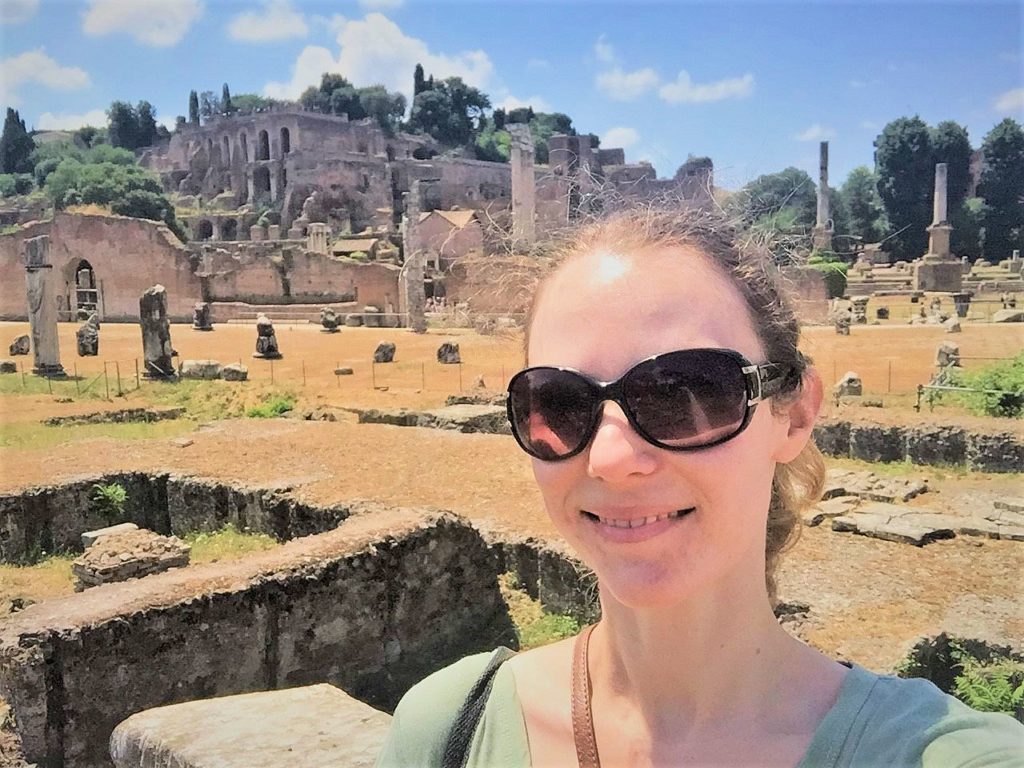News
13 August 2019 / Conferences
Shakespeare in Rome

An invaluable opportunity to share, debate, connect, and learn.
Isla Lindsay Hall, PhD candidate at the University of Kent, Canterbury.
I was delighted to be invited to share my research at the annual European Shakespeare Research Association (ESRA) conference in July 2019, in Rome. My attendance was made possible with the help of a grant from the Society for Theatre Research, for which I am very grateful. This conference was the undisputed highlight of my PhD journey so far and has been an invaluable experience for me.
I trained as an actor at the Central School of Speech and Drama, focusing on classical acting, and through this fantastic training, Shakespeare became my passion. In addition to acting work, for the last three years I have been teaching both acting and business skills, becoming particularly interested in gender and leadership. I combined these interests in my PhD, investigating how gender and leadership are represented in recent UK productions of Julius Caesar.
My PhD has been an extraordinary journey, shifting my opinions and growing the depth and nuance of my understanding around these issues. I am now aware of the insidious effects of implicit bias and the complexity of contested terms like: woman, leadership, and feminism. I propose applying a linguistic methodology for investigating gender and leadership in the media, to theatre casting, in order to identify how implicit bias is reinforced or subverted within casting and performance choices. As a passionate Shakespeare scholar, I chose to use recent productions of Julius Caesar as a framework for this investigation. This iconic play links masculinity and leadership in an exploration of power, making it pertinent as a research tool. In my ESRA paper I discuss the ways in which implicit bias operates in the cross-dressed style of the Donmar’s 2012/17 production, as opposed to the gender-swapped style of the Bridge’s 2017 production, with some surprising, and controversial, results.
I was honoured to be on a panel with esteemed associate professors Xenia Georgopoulou (University of Athens) and Veronika Schandl (associate professor at Pázmány Péter Catholic University). I was fascinated by their papers, and challenged by their, and others’, questions of my own. It was a privilege to be able to discuss my research with some of the finest minds currently working in the area of Shakespeare and Gender, and to be able to learn from their approaches, and questions. Ours was a lively seminar, which involved seemingly contradictory opinions and passionate voices. It was an opportunity to question, to discover, and to forge new connections in thoughts, as well as with people. I look forward to building these new networks in the future. It was an unforgettable experience.
To find myself surrounded by brilliant thinkers whose work I admire, and having these exciting debates, in a city so pertinent to my own research, made the experience all the more meaningful for me. Roma! I booked myself a late flight home the day after the conference finished to take advantage of this serendipitous situation, and took myself on a journey Shakespeare likely never did: I walked in Caesar’s footsteps around ancient Rome. As I wandered through the Roman Forum, I was reminded of Shelley’s Ozymandias, “Look on my works, ye mighty, and despair”, bringing home to me the true power of storytelling, our ultimate legacy. Julius Caesar’s story, and that of ancient Rome, mythical already by Shakespeare’s day, has endured, cementing Caesar’s legend through the ages in the recounting of it. I tried to picture Shakespeare’s iconic scenes as I roamed the ruins of the city, knowing Caesar’s story, and Shakespeare’s retelling, would continue to be “acted over / in states unborn and accents yet unknown” for “ages hence”. An evocative experience.
This was an unparalleled opportunity for me to share my research, to learn from thought-leaders in my field, building new networks of scholars, and to explore the place where the subject of Shakespeare’s play, and my research, was born, over two thousand years ago. I cannot thank the Society for Theatre Research enough for their generous grant, which covered my conference fee, and I encourage others to apply for grants to help start their conference journeys too.

If you too would like to be considered for an STR grant to attend or contribute to a conference, click here for more details.